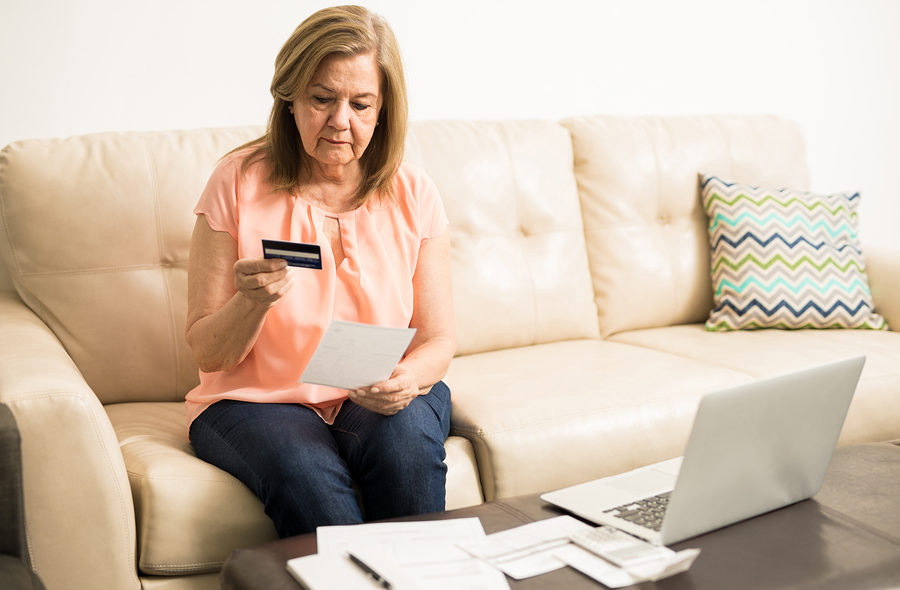Credit card debt is one of the biggest problems facing those with serious financial challenges. While using a credit card responsibly can be a good way to establish credit, things can quickly get out of control when a person relies too heavily on credit cards and does not have the ability to pay off the balance every month. Paying down credit card debt can be a struggle, but many common mistakes people make when trying to pay down their debt can make that process even more difficult.
Not Addressing the Cause of the Debt
Credit card debt can add up quickly if you run into an unexpected situation, such as a job loss or medical crisis. Credit card debt can also accumulate quickly if you rely on your credit cards too much for every day, smaller expenses. If you spend more than you are making each month, and cover the overage with a credit card, these expenses can add up quickly. It pays to thoroughly review your financial situation and spending habits to see what is causing the debt and establish a spending budget that fits your income.
Adding to the Balance While Paying on the Card
If you truly want to pay down credit card debt, it is important to stop adding to the balance. Many times, people will think that they can pay off the debt while continuing to use the card. However, all this does is add new charges to an old balance that is already accruing monthly interest. No matter how disciplined you may be with paying off your new expenses every month, you may find yourself never truly making progress on the outstanding principal until you stop using the card completely. It is advisable to cut up the credit card (so you are never tempted to use it) and still pay off the debt each month. Do not call and close out the card. Depending on your total available credit, closing a credit card account with a high credit limit could hurt your credit score, particularly if you have high balances on other loans or credit cards.
Not Effectively Utilizing 0% Interest Balance Transfers
Many times, consumers will utilize promotional balance transfer offers to pay off debt by transferring credit card debt on a higher-interest card to a zero-interest card. However, if the person continues using the card and accruing a balance, he or she may never be able to successfully pay down the amount due before the promotional period ends. Once that period does end, the cardholder will be stuck with an even larger interest rate than he or she had previously.
Not Having a Plan
If you want to be successful in paying off your credit cards, you need to have a plan. One mistake many cardholders make is to make payments without any real plan when an unexpected windfall, such as a bonus or tax refund, is received. If you receive a large sum of money, it can be tempting to put all of that money towards a large balance, but it can also be helpful for the future to put that money towards a savings so that an emergency fund exists in the event it is ever needed.
It also helps to put together a plan that will actually work when paying off credit cards. If you have more than one, it helps to take one card, focus your effort on that card and then put the money that you are putting on the first card once it is paid in full to go to the next one and so on. This method is often known as the “snowball method,” and many debtors have had a great deal of success with this debt payoff plan. However, make sure to keep paying the minimum payment on the other cards while paying off the first one to avoid falling into default.
To reach more on this topic, please click here.
If you have questions on this topic or are in financial crisis and considering filing for bankruptcy, contact an experienced Miami bankruptcy attorney who can advise you of all of your options. As an experienced CPA as well as a proven bankruptcy lawyer, Timothy Kingcade knows how to help clients take full advantage of the bankruptcy laws to protect their assets and get successful results. Since 1996 Kingcade Garcia McMaken has been helping people from all walks of life build a better tomorrow. Our attorneys’ help thousands of people every year take advantage of their rights under bankruptcy protection to restart, rebuild and recover. The day you hire our firm, we will contact your creditors to stop the harassment. You can also find useful consumer information on the Kingcade Garcia McMaken website at www.miamibankruptcy.com.

